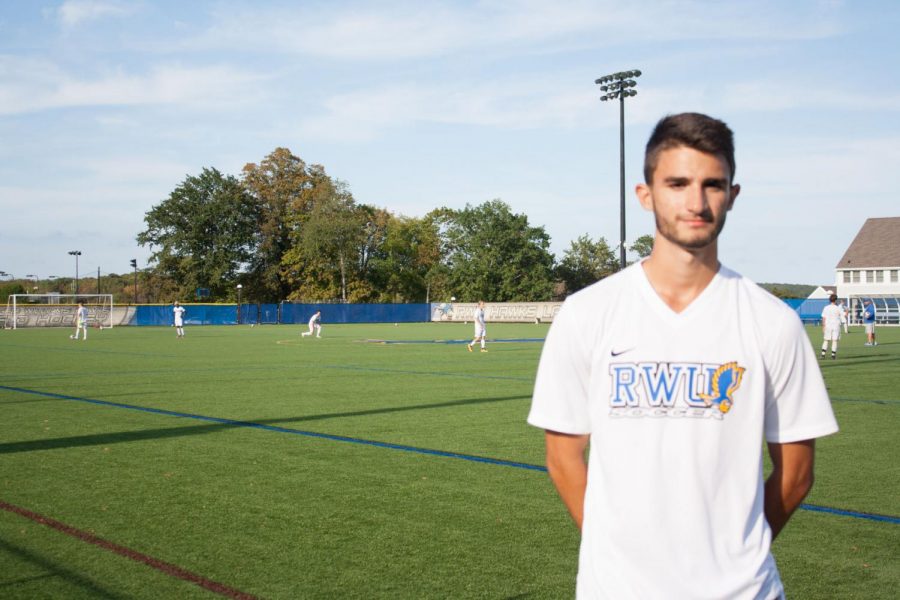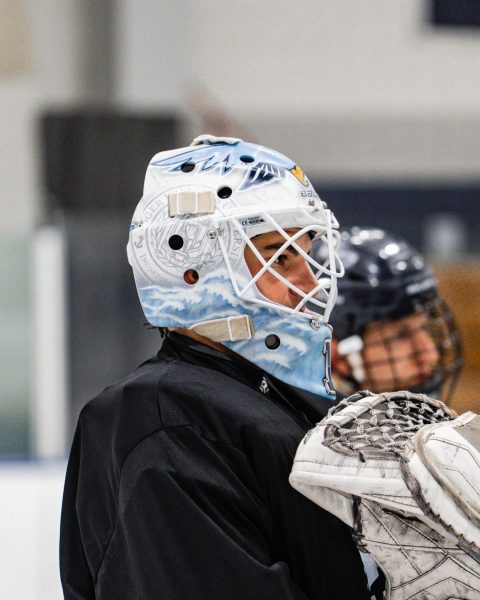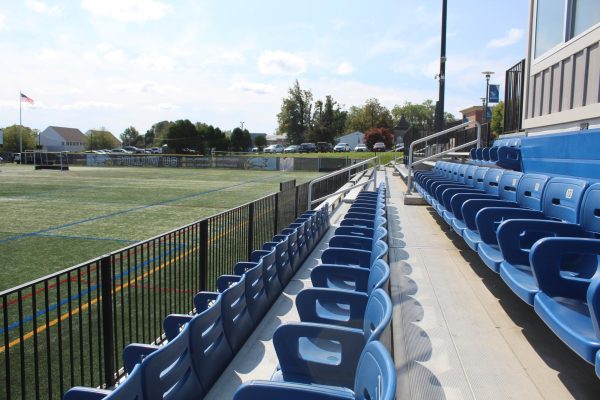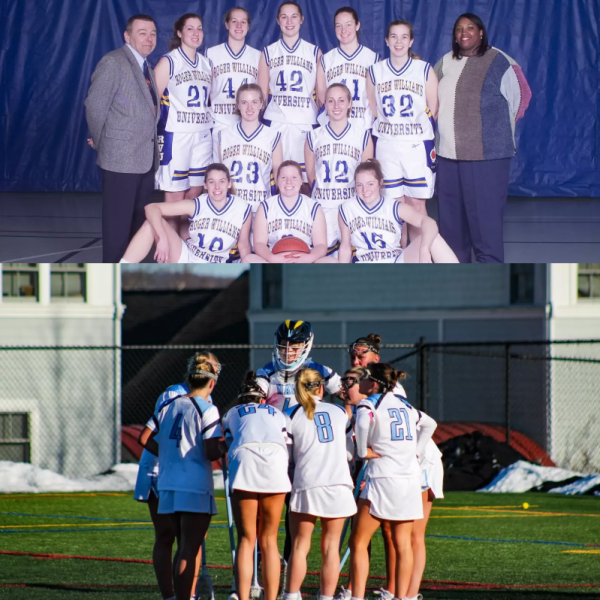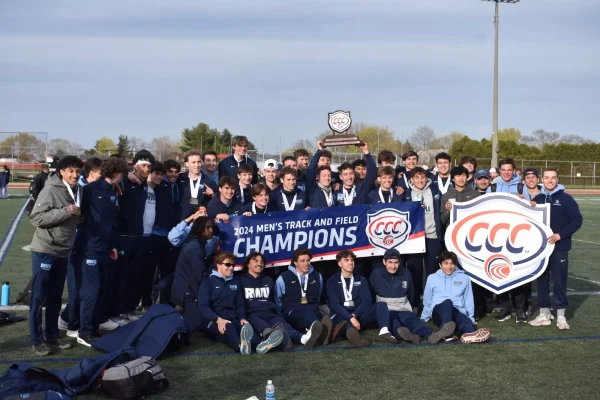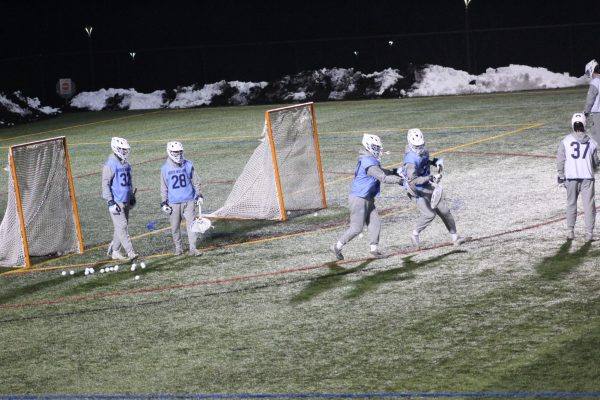Pain Makes Potential: Jadon Desmarais Prepares for Knee Surgery
Andrew Wuebker | Sports Editor
For Jadon Desmarais, the unknown awaits.
What he does know isn’t much. Sometime Friday at Kent Hospital in Warwick, R.I., Desmarais knows he’ll be under the knife. He knows he’ll be on some surgeon’s operating table. He knows all of this was his choice.
To Desmarais, all these extracurriculars are only for a chance. A chance to make his body better. A chance to end the pain. A chance for things to finally be right again.
“I am not that fearful of the surgery,” he says. “I believe that everything is to go right. I am focusing day by day to keep my head from dwelling on the what ifs.”
A 19-year-old freshman on the Roger Williams University men’s soccer team who’s out for the season, Desmarais is preparing for patellar tendon debridement surgery in his left knee. The patellar tendon is a strong, flat, ligament that originates on the patella (kneecap) and stretches to help the muscles extend the knee. When overused to the point when it is elongated, torn, or ruptured, surgery is usually required. The procedure involves the removal of dead patellar tissue and sewing together of the remaining, healthy tissue.
The surgery is a result of aftereffects from many injuries Desmarais sustained in his left knee that began almost four years ago during his sophomore season in high school. The injury has not only affected his availability and play on the field throughout his last four seasons, but also his everyday life. By making the decision to undergo surgery, Desmarais has taken this chance to unleash his ultimate potential as a soccer player and make daily life a little less painful.
A former three-time Division II All-Division selection from Mt. Hope High School in his hometown of Bristol, Rhode Island, Desmarais has loved soccer since he was young, routinely kicking “whatever he saw.” He’s a self-described loyal and compassionate person who cares about his friends. His immediate and extended family members came to every game in his high school career, despite the team’s performances being mediocre for the majority of the time. His key trait is a desire for success, calling himself “extremely ambitious” and boasting that he “hates to lose.”
“You can ask my friends that,” Desmarais said with confidence. “I don’t like losing. I’ll try harder than anybody else tries.”
Blossoming from his unrelenting desire to succeed was even a dream to play Division I soccer, but then, the injury happened.
“I blocked a shot, a kid ran through my knee and I sprained my [medial collateral ligament],” he said. “I ended up pushing through the pain and the injury, so that ended up in the long run [messing] up my knee, so I needed to have patellar surgery.”
Since then, it has been a long list of ailments for Desmarais. The overcompensation of his knee led to a meniscus sprain, a posterior cruciate ligament sprain, and the MCL tears.
Everyday life for him since then has been a challenge. If Desmarais sits in a certain position for too long, when he runs—and even walks—he gets a sharp, pulsating pain in his left knee. It comes and goes like jabbing pins and needles. Before he knew it, Ibuprofen became his best friend. On the field, the pain is intensified. Desmarais, who was such a crucial part to his high school team’s success, played through his injuries much of the time throughout his career, but not without a cost.
“Sometimes it gets unbearable,” he said. “In high school I had both my knees taped up to the point where I was a mummy, I would say. They were heavy.”
Even worse than the physical pain sometimes for Desmarais is the pain of “what ifs.” Desmarais believes his recruitment to Division I soccer programs was effected by his injuries, as well. Conversations he had with coaches from Long Island University, Bryant University, and Northeastern University ultimately led nowhere.
Over the last four years, he’s regretted missing games. It wasn’t until this year when he decided to shut himself down and take the chance to make himself better.
“The hardest part about this was it wasn’t a forced surgery,” Desmarais said. “It wasn’t like I had to get surgery. That’s different. It was my decision. I had to decide for myself whether or not I wanted to miss games. So, I just decided that the pain was getting [to be] too much and it was better to get surgery now than in the future. I’m happy because if I get back to 100 percent, I mean, there’s nothing better. I was capable of doing things on an injury that a lot of other players couldn’t and I can’t wait to see what I can do fully healthy.”
When surgery is over, Desmarais will be on crutches and sporting a knee brace for two to three weeks, then the rehabilitation process begins. The usual timetable for recovery is at least three months, but Desmarais plans to take rehab slow, do it right, and become an even better player than he once was.
The uncertainty that athletes face after a potentially career-changing injury is what makes surgery only a chance for Desmarais. Some athletes simply are just never the same post-op. However, Desmarais’s confidence and motivation are unwavering. When he’s back on the field, he is ready to make his debut for his hometown Hawks.
“If all goes well, I’ll be grateful to be able to focus on all the aspects of soccer without the feeling of being held back,” Desmarais said. “A word cannot describe what it will feel like to be allowed to push my body to its physical and mental limits for the first time in a while. It’s one of my only wishes to be able to show not only myself but everyone what my potential really is.”

